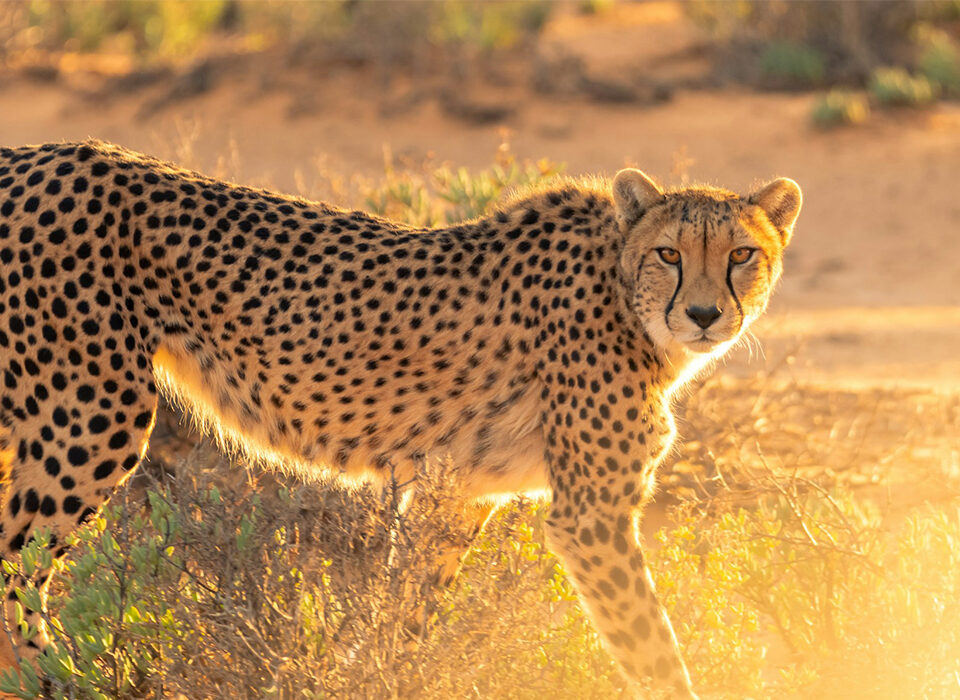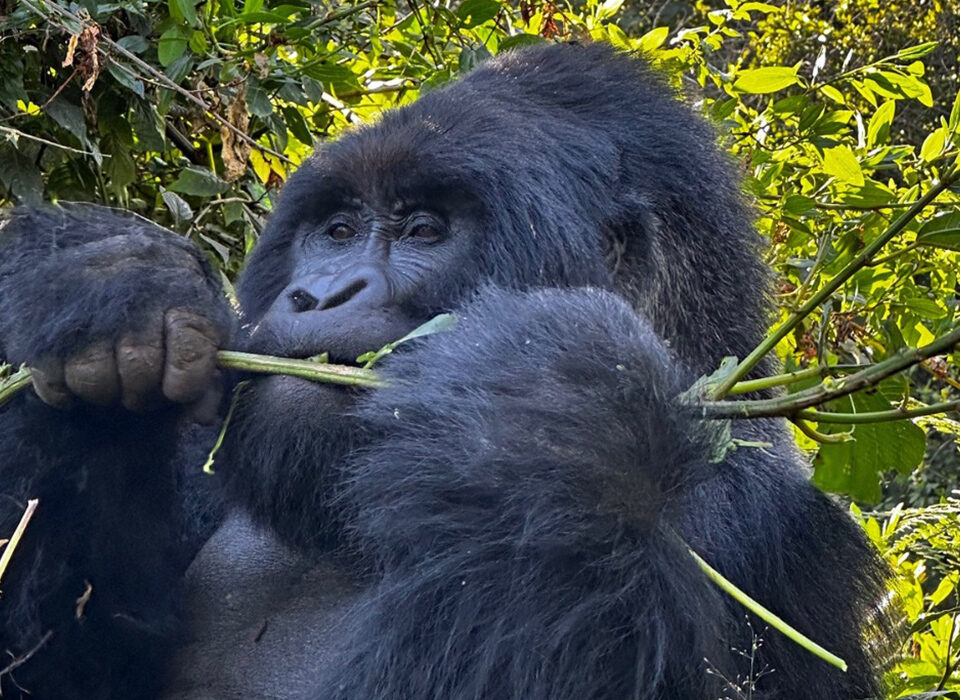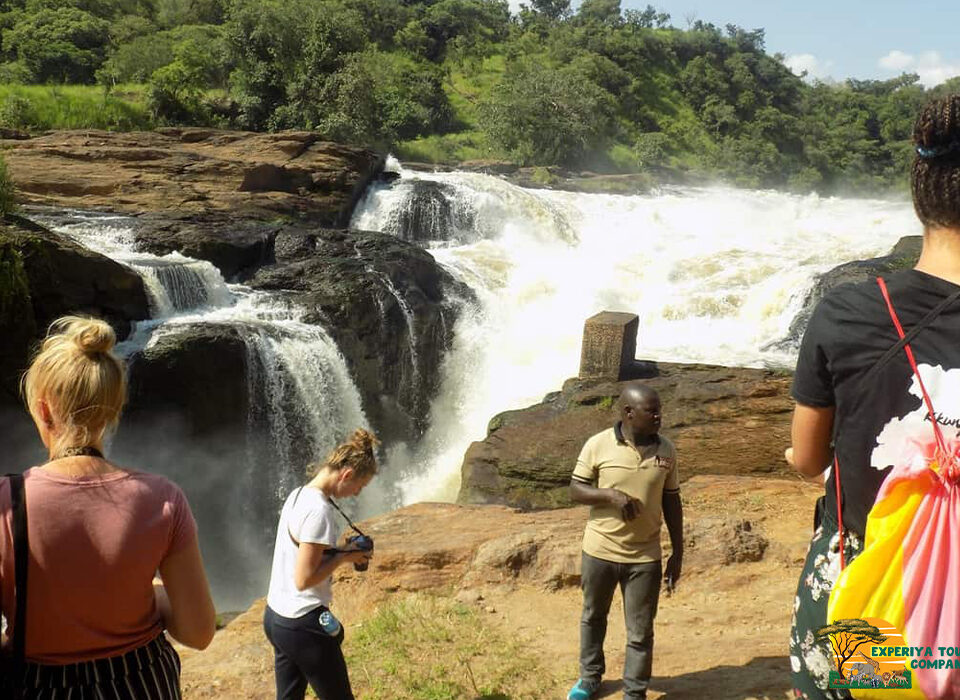How Much Is a Chimp Tracking Permit in Uganda? | Uganda Safari Guide
October 24, 2025
What’s the Best Time to Track Chimps in Uganda? | Uganda Safari Guide
October 24, 2025Can I Do a Full-Day Chimpanzee Habituation Experience? | Uganda Safari Guide
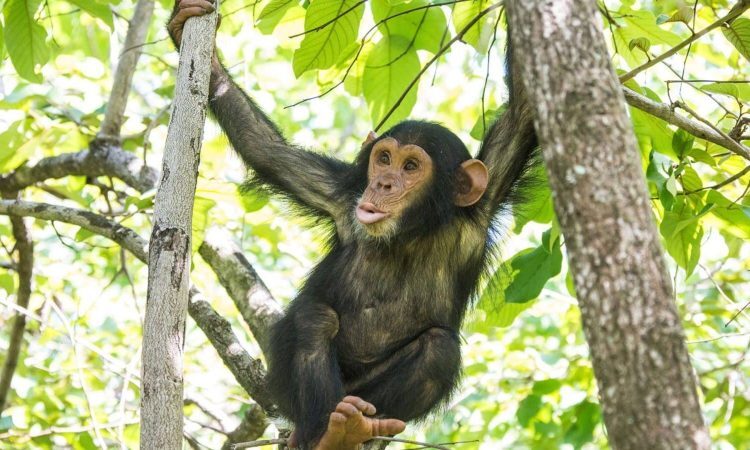
Can I Do a Full-Day Chimpanzee Habituation Experience?
If you’ve ever dreamed of spending an entire day deep in the rainforest, observing wild chimpanzees as they go about their daily lives — waking up, feeding, grooming, playing, and nesting — then the Chimpanzee Habituation Experience (CHEX) is made for you. It’s one of Uganda’s most immersive wildlife encounters, giving travelers a rare chance to follow a chimpanzee community that is still in the process of getting accustomed to human presence. Unlike standard chimp tracking, which allows just an hour of observation, the habituation experience lets you spend a full day in the forest with these remarkable primates.
But what exactly does the full-day chimpanzee habituation experience involve? Where can you do it, how much does it cost, and what can you expect from this once-in-a-lifetime adventure? Let’s explore everything you need to know before embarking on one of Uganda’s most fascinating primate safaris.
Understanding the Chimpanzee Habituation Experience
Chimpanzee habituation is a long-term scientific process through which wild chimpanzees become gradually accustomed to the presence of humans without feeling threatened or altering their natural behavior. This process can take up to two years, involving researchers, rangers, and occasionally small groups of tourists who join them in the field.
Unlike fully habituated chimpanzee groups — which are visited by tourists for short tracking sessions — semi-habituated groups are still learning to tolerate people. This means they might sometimes move quickly, hide, or remain alert, giving you a raw and authentic glimpse into the wild.
During a full-day habituation experience, you essentially join the researchers and rangers for a day of fieldwork. You start early in the morning, often before sunrise, and spend the entire day following the chimps from the moment they leave their nests until they build new ones in the evening. Along the way, you’ll observe and document their behaviors, interactions, and vocalizations — all while learning about the science of conservation and primate behavior.
It’s not just an activity; it’s an education, an adventure, and a privilege rolled into one.
Where Can You Do the Full-Day Chimpanzee Habituation Experience?
Uganda is one of the very few countries in the world that offers this activity. The Chimpanzee Habituation Experience is primarily available in two protected areas:
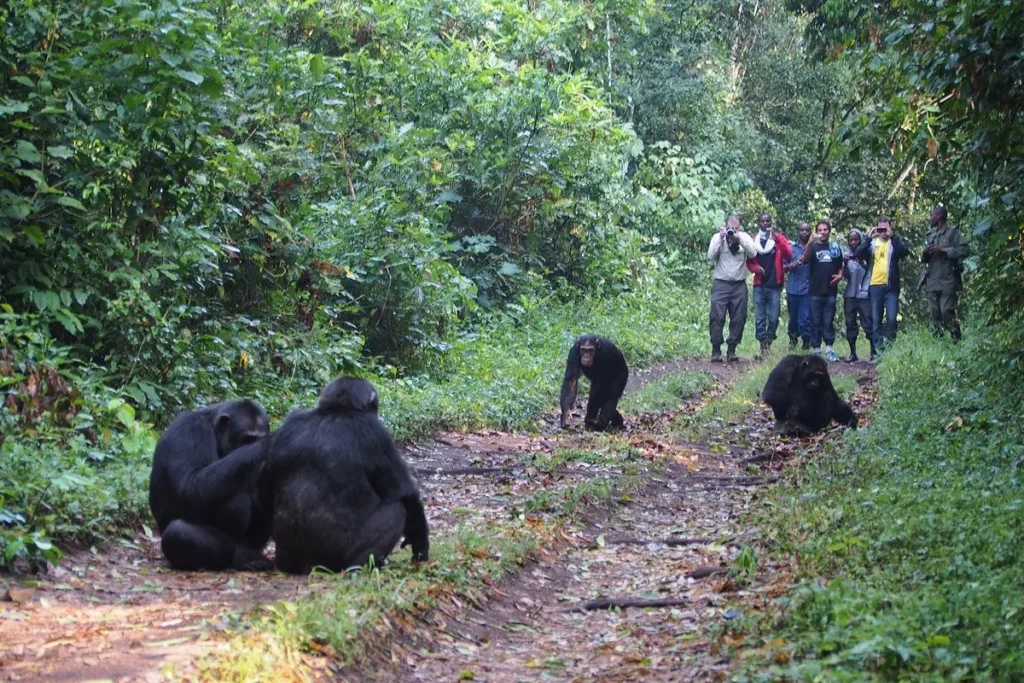
1. Kibale National Park – The Primate Capital of the World
Kibale National Park in western Uganda is the top destination for chimpanzee habituation. Often referred to as the Primate Capital of the World, it is home to more than 1,500 chimpanzees, along with 12 other primate species, including red colobus monkeys, grey-cheeked mangabeys, and L’Hoest’s monkeys.
The park’s dense tropical rainforest, mixed with swamp and grassland, provides an ideal habitat for chimpanzees. The habituation experience here is managed by the Uganda Wildlife Authority (UWA) and is led by experienced rangers and researchers who have been studying the park’s primates for decades.
Kibale is also the only place in Uganda where tourists can participate in the official full-day Chimpanzee Habituation Experience. It’s a deeply engaging program that draws visitors from all over the world who want to go beyond regular tracking.
2. Budongo Forest Reserve – A Lesser-Known Alternative
Located just south of Murchison Falls National Park, Budongo Forest Reserve also offers chimpanzee habituation experiences, though they are typically half-day or shorter sessions. Managed in partnership with the Jane Goodall Institute, Budongo’s habituation programs are more research-focused but occasionally open to tourists.
However, for a guaranteed full-day experience, Kibale remains the primary and most reliable location.
What to Expect During a Full-Day Chimpanzee Habituation
Your chimpanzee habituation day starts before sunrise, around 6:00 a.m. You’ll meet your guide and ranger for a briefing at the Kanyanchu Visitor Centre in Kibale. After the briefing, you’ll set out into the forest, equipped with your camera, water, and a packed lunch.
The goal is to reach the chimpanzees before they wake up, so you can watch them as they rise, stretch, and prepare for the day. You’ll hear their morning pant-hoots — a deep, echoing call that fills the forest with life. As the sun filters through the canopy, the chimps begin to move, forage, and interact, and your journey of observation begins.
Throughout the day, you’ll follow the troop through the forest as they travel, feed on figs and fruits, and rest. The forest floor may be damp and uneven, and at times, the chimps will move swiftly, requiring patience and endurance. But every moment spent with them feels rewarding — you’re witnessing behaviors that few people ever get to see.
You’ll learn to interpret their vocalizations, observe dominance displays, and even witness grooming sessions, which are crucial for maintaining social bonds. Around midday, you’ll pause for a picnic lunch in the forest, perhaps within earshot of the chimps’ distant calls.
As the day continues, you’ll see how their activity patterns shift. In the afternoon, the chimps become more relaxed, often resting or playing before they start to build new nests for the night. You’ll watch as they bend branches and weave leaves into intricate sleeping platforms — a surprisingly complex behavior.
By sunset, you’ll have spent an entire day in the life of the chimpanzees, gaining a deeper appreciation for their intelligence, emotions, and family structures.
What Makes the Habituation Experience Different from Regular Tracking
While both chimpanzee tracking and habituation involve observing chimps in the wild, they differ significantly in duration, purpose, and experience:
- Duration: Regular tracking lasts about 2–4 hours, including one hour of observation. Habituation lasts the entire day, from dawn to dusk.
- Focus: Regular tracking is a tourist activity aimed at viewing chimps up close. Habituation is a scientific process that allows tourists to join researchers and participate in real conservation work.
- Behavior: Habituated chimps are calm and familiar with humans, while semi-habituated ones are more cautious, offering a glimpse of their natural instincts.
- Intensity: Habituation requires patience, stamina, and adaptability, as you may need to trek longer distances and move through rough terrain.
The habituation experience is not for everyone — it’s designed for travelers who want a more meaningful and immersive connection with nature rather than a quick sighting.
How Much Does a Chimpanzee Habituation Permit Cost?
The Chimpanzee Habituation Experience Permit in Kibale National Park costs:
- Foreign Non-Residents: USD 300 per person
- Foreign Residents (with work permit): USD 250 per person
- East African Citizens: UGX 250,000 per person
This fee includes ranger guidance, park entry, and the full-day forest experience.
Permits are limited to a small number of visitors each day to minimize disturbance to the chimpanzees, so early booking is essential — ideally 3 to 6 months in advance, especially during the peak tourist seasons (June–September and December–February).
What to Bring for the Experience
Since the habituation experience lasts the entire day, you need to come prepared. Here’s what to pack and wear:
- Hiking boots with good traction for muddy or uneven trails.
- Long trousers and long-sleeved shirts to protect against insects and vegetation.
- Rain jacket or poncho, as Kibale is a tropical rainforest and showers are common.
- Insect repellent and sunscreen.
- Hat and sunglasses for sun protection during open sections.
- Drinking water and packed lunch, which your lodge or guide can provide.
- Camera and binoculars, but avoid flash photography.
- Small backpack to carry essentials comfortably.
Physical fitness is important — the trek can be demanding, especially when following the chimps for long distances.
Why the Full-Day Experience Is Worth It
The Chimpanzee Habituation Experience is one of the most unique wildlife encounters in the world. It’s not just about seeing chimpanzees; it’s about understanding them. Spending an entire day with these primates allows you to witness the complexity of their emotions, intelligence, and social structures.
You’ll observe dominance hierarchies among males, playful behavior among infants, and the subtle communication that binds the group together. These are moments that a one-hour tracking experience simply can’t provide.
Moreover, participating in habituation contributes directly to conservation. The funds from your permit help finance the Uganda Wildlife Authority’s ongoing efforts to protect chimpanzee habitats, support anti-poaching patrols, and engage local communities in conservation projects.
For wildlife photographers, researchers, and serious nature enthusiasts, this experience is pure gold. The time you spend in the forest offers unparalleled opportunities for capturing rare moments and learning from experts who’ve dedicated their lives to primate research.
When Is the Best Time to Do Chimpanzee Habituation?
The best time to do the chimpanzee habituation experience in Uganda is during the dry seasons, from June to September and December to February. During these months, trails are drier and easier to navigate, and the chimps are more predictable in their movements as they search for fruiting trees.
However, the activity is available all year round. The wet seasons (March–May and October–November) bring lush green forests, fewer crowds, and more photographic opportunities, though trekking can be more challenging due to slippery paths.
Conservation Importance of Habituation
Chimpanzee habituation plays a vital role in conservation. By gradually introducing chimpanzees to human presence, researchers can study them more effectively without causing stress or behavioral changes. This process also helps local communities and wildlife authorities monitor populations, prevent poaching, and promote eco-tourism as an alternative source of income.
Your participation in this activity not only enriches your travel experience but also contributes directly to these conservation goals. Every permit sold supports field researchers, forest rangers, and the protection of Uganda’s precious rainforests.
Recommended Safari Operator: Experiya Tour Company
To make your chimpanzee habituation experience seamless and memorable, it’s essential to travel with an experienced and reliable safari operator. Experiya Tour Company is one of Uganda’s leading safari experts, offering personalized itineraries that include chimpanzee habituation, gorilla trekking, wildlife safaris, and cultural experiences.
Experiya handles all logistics — from booking your habituation permit to arranging accommodation, transportation, and knowledgeable guides who understand primate behavior intimately. Their professionalism ensures that you enjoy every moment of this extraordinary adventure without any stress.
Whether you want to spend a full day following chimps in Kibale or combine it with gorilla trekking in Bwindi, Experiya Tour Company creates tailor-made journeys that bring Uganda’s wild beauty to life.
With Experiya, your chimpanzee habituation experience becomes more than just a safari — it becomes a day of discovery, connection, and purpose in the heart of Africa’s rainforests.

